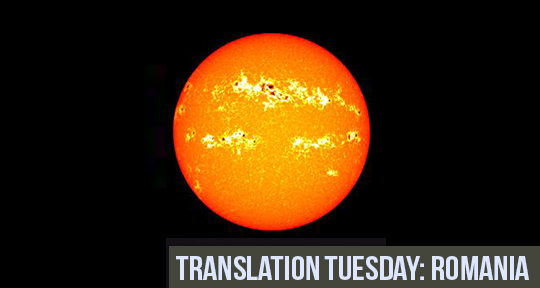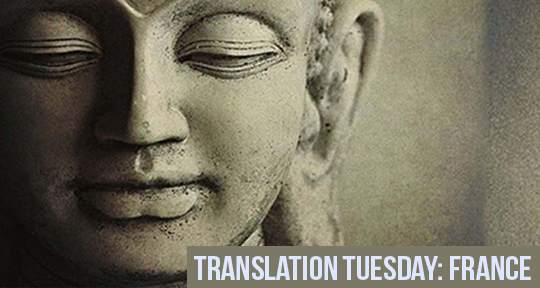For this week’s edition of In This Together, we present a non-fiction text from the prolific Wuhan-based writer, Fei Wo Si Cun 匪我思存 (psudonym of Ai Jingjing 艾晶晶), who has been publishing a series of texts, collected under the title The Wuhan Battle Diaries, since the first day of the city’s lockdown. Xiao Yue Shan, the translator of this text, explains the significance of these diaries:
The news in China came at the end of the lunar year; a particularly ill-fated time, as the holiday season piques the highest rate of travel both within and outside of the country. We did not know then what we know now—how quickly the virus would spread, how drastic its impact would be on our daily lives, and how, in a brief few weeks, the whole world would come to experience the same fear, trepidation, uncertainty, and weariness that the people of Wuhan awoke to in the thick of its winter.
Fei Wo Si Cun is an incredibly popular writer; her works, largely tales of love and desire, have made her a household name and launched her into screenwriting as well as media production. When the lockdown was first announced, her’s was one of the first voices sounding in response, and it has since persisted in its accounts. Her intimate, informal language charted the city’s tragedies—sometimes pragmatically, sometimes despairingly, yet always indelible with the sense of survival, and interwoven with a sense of intimate locality.
There are cities that become synonymous with their devastation—Wuhan, which had previously occupied a low tier in the global consciousness, will likely be bound to the COVID-19 pandemic for the enduring future. Yet, in Fei’s tender depictions of the city, we become privy to its actualities; there is a redemptive grace that even the most devastated places may persist as a home, as somewhere precious. Many of us around the world are finding ourselves suddenly estranged from our localities, which have been cleared of their familiarities and comforts, but it is my wish, in translating this, that a Wuhan woman’s love for her city may remind us of what we cherished of these places, of what we wish now to save.
Awaiting Spring Under Quarantine
by Fei Wo Si Cun 匪我思存
These days, I’ve been staying up late. Yesterday, at around two in the morning, when suddenly news came online that Wuhan would halt all forms of public transportation—subways, airports, train stations, and any other method of leaving the city—my chest thudded. First arrived the knowledge that these measures indicated the severity of this epidemic, then came the disbelief, that I would actually witness a lockdown like this in my lifetime. READ MORE…












Translation Tuesday: “The Lost Spell” by Yismake Worku
Now I am only a sorrier version of the dog that traversed through the forest with the grace of a cheetah.
For this week’s Translation Tuesday, visionary novelist Yismake Worku adopts fantasy and satire as probing social commentary in this excerpt from The Lost Spell. While researching a book of spells, a wealthy man transforms himself into a dog. We follow the (now) canine protagonist as he journeys to Addis Ababa, and through his eyes we witness the sublime beauty of the Ethiopian landscape. The story of one man’s literal dehumanization allegorizes the abasement our narrator witnesses around him as he simultaneously lauds and laments his country. Through the narrator’s unique position as both subjective participant and objective bystander, Worku presents a fly-on-the-wall (or a dog-on-the-road) view of contemporary Ethiopia that is at once a critique and a bittersweet love letter.
It has been a horrible few days. I feel like some life has been drained from my short dog existence. If I hadn’t managed to drag myself into the middle of a corn farm, I would have been picked apart by merciless scavenging birds.
The cause of my pitiful circumstances was an auto-rickshaw accident. If the God of dogs and all creation hadn’t spared me, I would have departed my dog life by now. The rickshaw didn’t hit me full on; it knocked me on my left rear, bending me like a rubber and causing me to plunge into a drain. An unseasonal rain had been pouring down all evening. So, the flood could have carried an elephant, let alone a battered dog. It hauled me along the garbage of Shashemene. Banging me around with every object it carried along, the flood finally threw me into a small river. The river in turn dragged me through shrubs, sometimes battering me against rocks, and deposited me near a cornfield. READ MORE…
Contributor:- Bethlehem Attfield
; Language: - Amharic
; Place: - Ethiopia
; Writer: - Yismake Worku
; Tags: - allegory
, - amharic
, - ethiopia
, - satire
, - social commentary